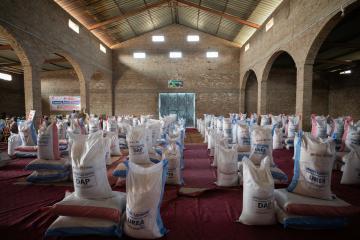
Myanmar Earthquake: How DEC charities are supporting those affected
By
Samuel Gard
17 April 2025
17 April 2025

Plan International distributing drinking water to people affected by the Myanmar earthquake, April 2025. Image: Plan International

DEC charity World Vision visits a rural community in Myanmar to deliver water purification sachets and provide demonstrations on how to use them correctly, April 2025. Image: World Vision
READ MORE

How DEC charities are providing aid in Myanmar
How DEC charities are supporting people in Myanmar after a powerful 7.7 magnitude earthquake devastated huge areas, affecting millions of people.
Read more



